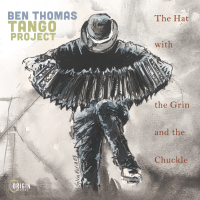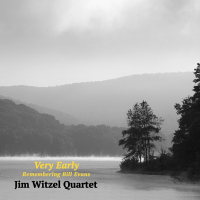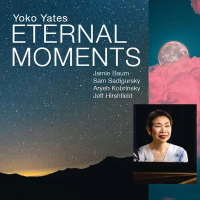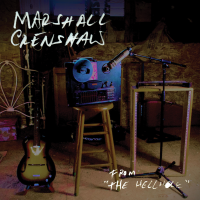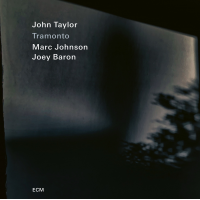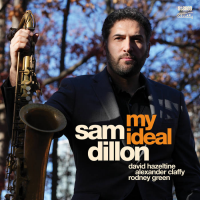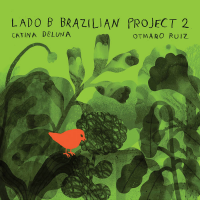Home » Jazz Articles » Bailey's Bundles » Late-Period Art Pepper Box Sets
Late-Period Art Pepper Box Sets
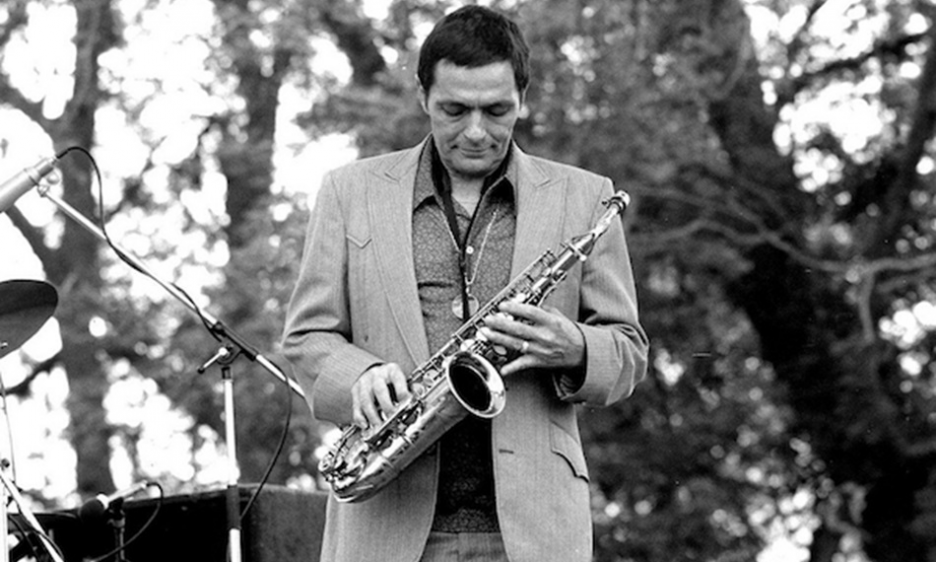
Courtesy Laurie Pepper
It is fitting that Art PepperĪ»s late and most productive period enjoyed this degree of documentation. Marginalized during the majority of his haphazard career, Pepper rose above the resistance to be recognized as a true jazz original.

Art Pepper
saxophone, alto1925 - 1982
"Pepper's sudden reappearance in 1975 was something of a second coming in musical circles. For the next seven years, his frequent recordings and tours, and the publication in 1979 of the autobiography he and his wife Laurie wrote, Straight Life, transformed him from a gifted altoist who had made a string of semi-classic albums in the Fifties to a touchstone for the very aesthetics of jazz music."
That "string of semi-classic albums" included the Contemporary Records releases Art Pepper Meets The Rhythm Section (1957), Art Pepper + Eleven—Modern Jazz Classics (1959), Gettin' Together (1960), Smack Up (1960), and Intensity (1963). The latter two might be considered "semi-classic," but the former three helped define the West Coast jazz sound. They also represent Pepper's early period denouement.
Like Beethoven's, Pepper's professional career can be divided into three distinct periods:
Early: 1940-1960
While in his teens, Pepper played in
Benny Carter
saxophone, alto1907 - 2003

Stan Kenton
piano1911 - 1979

Charlie Parker
saxophone, alto1920 - 1955
Middle: 1960-1975
Again, like Beethoven's, Pepper's middle period was a fallow one consisting of prisons, hospitals, felonies, and what William Burroughs termed "the algebra of need." Yet there were notable recordings made during this period. Pepper's stay in prison coincided with his exposure to
John Coltrane
saxophone1926 - 1967

Buddy Rich
drums1917 - 1987

Johnny Hodges
saxophone, alto1907 - 1970

Paul Desmond
saxophone, alto1924 - 1977
Late: 1975-1982
G?tterdammerung. Pepper's final period found the saxophonist settling down into a style that combined his early cool jazz approach with the fiery pulpit of his early comeback period. This creative era further divides into the Contemporary Records comeback period overseen by Koenig, and the Galaxy coda, managed by Ed Michel. The first sub-period started with the release of Living Legend (Contemporary, 1975) and would include The Trip (Contemporary, 1976), No Limit (Contemporary, 1977), and Pepper's staggering debut at New York City's Village Vanguard, portions of which were released on four LPs later consolidated on The Complete Village Vanguard Sessions (Contemporary, 1995).In November 1977, Koenig died from a heart attack just as the saxophonist's Contemporary contract was ending, leaving Art and Laurie Pepper in search of a new label. Another empathetic producer, Ed Michel of Galaxy Records, took Pepper on, directing the saxophonist until he died in 1982. Pepper enjoyed a fruitful and satisfying period where he recorded his "with strings" offering, Winter Moon (1980), his famous Maiden Voyage performances (these now collected on The Complete Maiden Voyage Recordings [Omnivore Recordings, 2023]), and his sublime final duet recordings with his favorite pianist,

George Cables
pianob.1944
Overlapping these two late sub-periods were Pepper recordings made for the Japanese Atlas label and John Snyder's Artist House Records, both collected and released as boxed sets The Hollywood All-Star Sessions (Galaxy, 2001) (later re-released individually as the six-volume Art Pepper Presents The West Coast Sessions by Omnivore Recordings in 2017) and Promise Kept: The Complete Artists House Recordings (Omnivore Recordings, 2019), collected from the individual Omnivore re-releases.
This body of work represents Pepper's entire late-period career. It has finally been assembled and released sensibly and responsibly in these five box sets.
 Art Pepper
Art Pepper The Complete Village Vanguard Sessions
Contemporary Records
1995
By the time Art Pepper made his belated debut as a band leader on an East Coast tour, he was three studio albums into his comeback on Contemporary Records with producer and longtime friend Koenig: Living Legend (1975), The Trip (1976), and No Limit (1977). These recordings provided Pepper with new material to play live in addition to the standards with which he made his name. These recordings also established Pepper as a composer, setting him up for his comeback proper.
After appearing with the

Cal Tjader
vibraphone1925 - 1982
From Chicago, Pepper bounced from Boston to Dayton back to New York City and the Vanguard where Koenig arrived to record the saxophonist with pianist Cables, bassist

George Mraz
bass1944 - 2021

Elvin Jones
drums1927 - 2004
Koenig flew in from Los Angeles to record Pepper at the Village Vanguard over three days, July 28-30, 1977. Each day included three shows for a total of nine shows containing 41 performances. Four LPs were released by Contemporary Records in 1977: Thursday Night At The Village Vanguard, Friday Night At The Village Vanguard, Saturday Night At The Village Vanguard, and More For Les At The Village Vanguard. These four recordings contained 21 of the 41 total performances. In 1980, Contemporary Records released Art Pepper—Live At The Village Vanguard in Japan, which added more previously unreleased performances to the discography. And this is where things sat until 1995 and the release of The Complete Village Vanguard Sessions.
Pepper used his original "Blues For Heard" as his set theme. Composed for the noted bassist

John Heard
bass, acoustic1938 - 2021
Pepper had written several songs specifically for the Vanguard appearances in addition to "Blues for Heard." "My Friend John" was written for Snyder, the facilitator of East Coast tour. Pepper favors lengthy and complex heads, composing one here. The piece lives between hard bop and post bop. Pepper slips casually into Coltrane's "sheets of sound" without surrendering to them. Jones's drums brims with the polyrhythms he provided Coltrane a decade earlier. "For Freddie" is a slick bebop blues that will remain in the Pepper catalog through the Maiden Voyage performances five years later. "Live At The Vanguard" is a spacious rhumba carriage designed for all of the soloists to have plenty of time to work out their ideas.
"Blues For Les" pays tribute to Koenig who was present to record these performances. It is an elegant slow blues that develops slowly and simmers, never reaching a full boil (by design). "Vanguard Max" is named for the venue's famous manager, Max Gordon, and is an almost Baroque piece masquerading as a jump blues. Pepper's performances tighten up as the residency progresses but never loses the anxious energy and anticipation he brought with him in his assault on the East Coast.
There are many highlights among these 41 selections. Pepper was a consummate ballad player, his talent deepening during this comeback period. His mainstays are all here. The Jimmy Van Heusen/Johnny Burke "But Beautiful" was a common vehicle for Pepper throughout his career and Pepper is nervously plaintive in his delivery. "Over The Rainbow" is presented as a solo exposition, as Pepper liked to play it live. Pepper uses the familiar melody to work out his emotional ideas and is some of his most self-aware, naked playing, where he leaves it all on the stage. "You Go To My Head" is seductive, those pretty words one says to a would-be lover. Pepper converses over Mraz's light support until reaching the threshold temperature where the song magically picks up, ebbs, and flows as an exposition of sated seduction and acknowledgment. "Stella By Starlight," "These Foolish Things," and "Goodbye" all find Pepper in his element.
Pepper punctuated his stay at the Village Vanguard with two bebop anthems. Performed only once during the three days was Charlie Parker and

Dizzy Gillespie
trumpet1917 - 1993
Cables follows with a handful of solo choruses building on one another. Jones keeps time as his presence increases in volume and content. Out of almost nowhere comes Pepper on tenor, trading eights with Jones. This is a special night, to be sure, and a special performance. The band closes as they opened, Pepper on clarinet. The second anthem is the last of three performances of

Ray Noble
composer / conductor1903 - 1978
The Village Vanguard Sessions is not about being the best Art Pepper on record. It is a testament, a conduit between exile and exaltation. At the time, Pepper was the chrysalis emerging from his marginalization into a spotlight much deserved and a long time coming. In terms of his comeback, this was only the beginning.
Key Selection: "Anthropology."
 Art Pepper
Art Pepper The Complete Galaxy Recordings
Galaxy Records
1989
Few recording artists rate having a 16-CD box set assembled and released. It is an expensive undertaking for a recording company and not without risk. Art Pepper spent the end of his career with Galaxy. The label was founded in 1964 by the brothers Max and Sol Weiss as a rhythm and blues imprint for Fantasy Records in Berkeley, California. Three years later both Galaxy and Fantasy were sold and the label fell into disuse for a decade, returning as a jazz label to record such jazz names as

Chet Baker
trumpet and vocals1929 - 1988

Stanley Cowell
piano1941 - 2020

Nat Adderley
trumpet1931 - 2000

Tommy Flanagan
piano1930 - 2001

Red Garland
piano1923 - 1984

Johnny Griffin
saxophone, tenor1928 - 2008

Roy Haynes
drums1926 - 2024

Hank Jones
piano1918 - 2010

Philly Joe Jones
drums1923 - 1985

Shelly Manne
drums1920 - 1984

Ira Sullivan
multi-instrumentalist1931 - 2020
Between the recording of Art Pepper Today in 1978 and the duet performances with George Cables, T©║te-©ż-T©║te and Goin' Home in 1982, one month before his death, the alto saxophonist released 18 LPs (17 LPs are detailed in the original box set release. In 1991, Arthur's Blues was released, collecting five previously unreleased songs). Released in 1989, The Complete Galaxy Recordings would serve as Pepper's defining oeuvre.
The Complete Galaxy Recordings has a rather complex assembly. Eight studio LPs bear the original Galaxy imprint, two were the Pepper-led quartet recordings Art Pepper Today and Straight Life, two were multi-artist collections to which Pepper contributed, Ballads By Four (Pepper providing "Over The Rainbow") and 5 Birds And A Monk (Pepper providing "Yardbird Suite"), both contributions being recorded in the sessions resulting in Art Pepper Today. Additionally, two recordings resulted from his "with strings" sessions, Winter Moon and One September Afternoon. The final two Galaxy imprinted records were Pepper's and Cables's noted duet recordings Goin' Home and T©║te-©ż-T©║te.
The live recordings included in the box set had two sources: Landscape (released on Galaxy) and Besame Mucho (released on the Japanese Victor label) both recorded at the Shiba Yubin Chokin Hall in Tokyo on July 16, 1979, and July 23, 1979, respectively. The second source was the recordings from Pepper's Maiden Voyage performances made on August 13-15, 1981, that resulted in Roadgame, Art Lives, APQ, and Arthur's Blues (collected and released after this box set). A discussion of the Maiden Voyage recordings follows in a section below.
The final four recordings in this box set resulted from a promise Pepper had made to Snyder, his benefactor for the 1977 East Coast tour and owner of Artists House Records. In return for Snyder's generosity, Pepper promised to record for Artists House. These will also be discussed in a later section.
Art Pepper's Galaxy output presents the artist at his most settled and expressive. He wrote new music, like "Mambo Koyama," "Our Song," and Pepper's finest composition, "Make A List." But, he also looked backward, rerecording his early-period compositions, "Pepper Pot" (From The Art Pepper Quartet [Tampa, 1956]), "Straight Life" (from Surf Ride [Savoy, 1957]), and "Patricia" (from The Return Of Art Pepper [Jazz: West, 1957]) the latter a dedication to his daughter.
Pepper's playing retained the influence of Coltrane, most often manifesting in live performance. Traces of his Desmond-inspired dry-ice tone also remained. What Pepper settled into was his original sound, frayed at the edges with the capacity to go full-blown nuclear, raining every emotion presently passing through the artist as he played. More than any other alto saxophonist, Pepper was able to assimilate the styles of many of his contemporaries while remaining distinctively himself. While no innovator, Pepper was a unique voice with a distinctive story.
Key Selection: "Make A List."
While the original "Make A List" from 1979's Straight Life is exceptional, the way to hear it definitively performed is on Unreleased Art, Vol. III: The Croydon Concert, May 14, 1981 (Omnivore Recordings, 2022).
 Art Pepper
Art Pepper The Hollywood All-Star Sessions
Galaxy Records
2001
It has taken three separate releases of this material for Laurie Pepper, Art's widow, to 'fess up and claim responsibility for the idea behind the Hollywood Recordings. When Art Pepper signed with Galaxy Records, he agreed to an exclusive contract where he could not record for any other labels as a leader. However, he would be able to appear as a sideman on other labels' recording dates. After having toured Japan in 1979, where he received adulation, Pepper was approached by representatives of the Japanese record label Yupiteru (later Atlas) to make some recordings for them.
The Yupiteru representatives wanted 1950s-style West Coast jazz performed by '50s-vintage West Coast jazz musicians. The label even had a list of names, as well as a list of classic '50s songs. This was all too good to be true...indeed, because of Pepper's exclusive agreement with Galaxy. Laurie Pepper reasoned that Art could record as a sideman (in name only) while acting as the de facto leader on the dates and not violate his Galaxy contract. And that is how the Atlas recordings came to be.
Laurie also reasoned that the ruse of Art being a sideman played a positive psychological role in Pepper's preparation and performance. As a leader, Pepper was always completely invested, taking seriously his responsibility for the dates, musicians, and the material. In other words, anxious and stressed out. As a sideman, Pepper could relax and enjoy himself (as much as he ever could). And this is how it sounds on these recordings. This was a pretty sweet deal with the results speaking for themselves. Seven LPs resulted (in the order of release with commentary):
Bill Watrous Quintet-Funk'n Fun (Atlas Records (J), 1979). Trombonist

Bill Watrous
trombone1939 - 2018

Bob Magnusson
bass, acousticb.1947
Jack Sheldon And His West Coast Friends-Angel Wings (Atlas Records (J), 1980).

Jack Sheldon
trumpet1931 - 2019
Pete Jolly And His West Coast Friends-Strike Up The Band (Atlas Records (J), 1980). Pianist

Pete Jolly
piano1932 - 2004
Sonny Stitt And His West Coast Friends-Groovin' High (Atlas Records (J), 1980). Pepper recorded four days with alto saxophonist

Sonny Stitt
saxophone1924 - 1982

Lou Levy
piano1928 - 2001
Chuck Domanico
b.1944Sonny Stitt And His West Coast Friends-Atlas Blues -"Blow! And Ballade" (Atlas Records (J), 1980). The second two-day session replaces Levy with Pepper stalwart
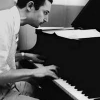
Russ Freeman
piano1926 - 2002
Shelly Manne And His Hollywood All Stars-Hollywood Jam (Atlas Records (J), 1981). This was the only date where Pepper was not the de-facto leader because any date

Shelly Manne
drums1920 - 1984

Bob Cooper
saxophone1925 - 1993

Monty Budwig
bass, acoustic1929 - 1992
Lee Konitz And His West Coast Friends-High Jingo ((Atlas Records (J), 1982). This is perhaps the finest volume of the bunch.

Lee Konitz
saxophone, alto1927 - 2020

Miles Davis
trumpet1926 - 1991

Lennie Tristano
piano1919 - 1978

Warne Marsh
saxophone, tenor1927 - 1987

Paul Chambers
bass, acoustic1935 - 1969
In 2001, Galaxy Records released the Atlas recordings as a 5-CD box set, Art Pepper-The Hollywood All-Star Sessions. Several of the recordings included previously unreleased material, but not all of the unreleased material. In the early 2010s, Laurie Pepper and her Widow's Taste Record Label struck up a deal with Grammy Award-winning producer and Omnivore label-founder Cheryl Pawelski, to shepherd what was becoming an unmanageable re-release program. The two women synergistically brought order to Pepper's catalog. Part of their effort resulted in the Art Pepper Presents West Coast Sessions Volumes 1-6. These recordings now include all of the material from the sessions that were able to be located, bringing this segment of the Art Pepper discography to a satisfactory developmental coda. The Omnivore releases represent the definitive testament of Art Pepper's Atlas label recordings.
Key Selection: "Lester Leaps In."
 Art Pepper
Art Pepper Promise Kept: The Complete Artists House Recordings
Omnivore Recordings
2019
It was in early 1977 when Contemporary president Lester Koenig introduced Art and Laurie Pepper to John Snyder, then the creative director of Horizon Records, A&M Records' jazz imprint. A man of certain means, Snyder wondered why Pepper was not touring and he went on to enable Pepper's tour of the East Coast. The tour began with Pepper appearing for a week in Toronto followed by an exceptional concert experience at New York City's Village Vanguard. These dates were played with pickup bands as was the typical course of events.
Snyder approached Koenig asking him to allow Pepper to return to the Village Vanguard, this time recording the performances. Snyder wanted to direct the recording. Koenig agreed that it would be a good idea to have Pepper return to the Vanguard to record with a hand-picked band, but it was Koenig who would direct the recording for Contemporary.
Snyder was disappointed, but Art and Laurie Pepper promised him that Pepper would record a single album for Snyder's new label Artists House. In the meantime, Lester Koenig died suddenly and Pepper's Contemporary contract came to an end. When Pepper signed with Fantasy Records' Galaxy Imprint, the saxophonist stipulated that he be allowed to record one album for Artists House. Pepper ended up providing enough material for four albums. The material was recorded during two sessions. The first was held at the Sound Ideas in New York City ("New York Sessions") on February 23, 1979, with pianist

Hank Jones
piano1918 - 2010

Ron Carter
bassb.1937

Al Foster
drums1944 - 2025

Charlie Haden
bass, acoustic1937 - 2014

Billy Higgins
drums1936 - 2001
The "New York Sessions" were challenging for Pepper. He was playing with well-established East Coast masters whom he believed did not take him seriously. According to Laurie Pepper, the saxophonist suffered from "an elitist-black-New-Yorker-jazzer attitude toward him." A single listen to these two sessions and one can believe that the East Coast rhythm section called in their contributions from a pay phone while Pepper played his heart out. Pepper was always competitive and loved to be challenged, and he was in his New York Session, but his bandmates refused to meet his enthusiasm halfway. Pepper was meeting a challenge while his rhythm section was collecting their checks.
Pepper's experience with his LA rhythm section was much more amiable and conducive to some inspired blowing. Pepper already had experience playing with Cables, whom he called his "Mr. Beautiful," Haden had a Midwestern sensibility that made him easy to get along with. Higgins was a monolith to the jazz community., but one of exceptional modesty These sessions went much better, providing better-balanced performances. These four recordings are included in the 16-CD Box Set The Complete Galaxy Recordings sans the exhaustive inclusion of all available alternate takes found in this box set. In order of release with commentary:
So In Love (Artists House, 1980). This album is the single contract-allowed recording for Snyder's Artists House label. The original album contained five selections, released here with three bonus cuts. Four of these selections derive from the New York Sessions: two takes of

Thelonious Monk
piano1917 - 1982
Artworks (Galaxy, 1984). Released posthumously, Artworks contains six selections from the original release plus an additional five all recorded by the LA rhythm section. The two takes of "Anthropology" with Pepper playing clarinet in a trio format with Haden and Higgins, are enough to fuel a wish that Pepper had recorded more in the pianoless trio format. Where the bebop anthem "Anthropology" is all shiny surfaces, another, "Donna Lee" (also present with a bonus alternate) is all frantic jagged edges, hurried, even rushed. The two performances of "You Go To My Head" provide just the ballad touch to the release.
New York Album (Galaxy, 1985). This recording exclusively contains selections recorded with the New York rhythm section. It contains five selections from the original recording, supplemented by an additional five bonus cuts. Bebop saturates the recording with two performances each of "Night In Tunisia," "Lover Man," and "Straight, No Chaser." The two takes of "My Friend John" written for Snyder and debuted during the 1977 Village Vanguard residency, stand out even with the questionable support from the rhythm section.
Stardust (Victor [J], 1985). This album was originally released only in Japan, where Pepper always enjoyed great popularity. All songs were performed with the LA rhythm section, save for two divine solo clarinet performances of "Art's Sweet Blues" and "But Beautiful." "Tin Tin Deo" is a treat brought back from Pepper's 1957 release Meets The Rhythm Section (Contemporary). Two additional takes of "My Friend John" are included, providing a full picture of Pepper's compositional prowess. A fifth disc contains the remaining extant material from these recording sessions, rounding out this box set with all available material—a completist's dream. Laurie Pepper and Cheryl Pawelski have curated this set admirably.
Key Selection "But Beautiful" solo alto performance
 Art Pepper
Art Pepper The Complete Maiden Voyage Recordings
Omnivore Recordings
2023
Laurie Pepper had advocated for a complete set of Pepper's Maiden Voyage performances to be collected and released. In 2017 Craft Recordings (an imprint of Concord Records) released a digital-only version with 21 of the 42 songs performed over those three days in Fall 1981. However, Ms. Pepper wanted more. According to Laurie Pepper's liner notes, she strong-armed Pawleski into not only re-releasing the extant music but including all of the previously unreleased material from the residency. This amounts to an additional 23 unheard performances and all of the between-song commentary by Pepper. This is as close as one gets to having been there.
Maiden Voyage was a Japanese-owned jazz club located at 2424 Wilshire Blvd. across the street from MacArthur Park in Los Angeles. The club was in operation from 1979 to 1983. In August 1981, Pepper, with pianist Cables, bassist

David Williams
bassb.1946
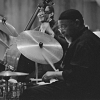
Carl Burnett
drumsPepper's Maiden Voyage Performances were among the most relaxed that the alto saxophonist made as a leader. Professionally, he was meeting his goals, among them the "with strings" recording, Winter Moon (Galaxy, 1979), and a duet set with Cables, that resulted in Goin' Home (Galaxy, 1982) and T©║te-©ż-T©║te (Galaxy, 1983), both recorded after the Maiden Voyage residency. He was comfortable with his band, who shared a solid synergy with their leader. This empathic quartet had risen to the necessary technical accomplishment that Pepper deserved to have and so often wanted. He had achieved the attention and acclaim he desired and deserved. When Pepper and his quartet came to the Maiden Voyage, they were ready to play.
These performances can be framed in terms of ballads, blues and original compositions, each overlapping the other. Pepper was a master ballad interpreter. Much has been made of his singular performances of the 1940 Adair/Dennis pop standard "Everything Happens To Me." These are exceptional performances of a ballad that had been in Pepper's book since the beginning. He performs the piece plaintively as if acknowledging a life both difficult but finally fulfilling. It is haunting. Another ballad close to Pepper was the Van Heusen/Burke composition "But Beautiful." Pepper performed this ballad multiple times while at Maiden Voyage, each time very slowly divining from its flat and linear melody those diamonds that exist in well-composed songs. "While "Everything Happens To Me" is a wink at his past, "But Beautiful" is the statement of who Art Pepper was as an artist.
The blues songs included in the Maiden Voyage performances demonstrate that Pepper had a blues sensibility equal to that of Parker or Hodges. What is entitled "Thank You Blues" on this box release was incorrectly labeled as "For Freddie" on the original LP release of Art Lives. It was corrected to "Thank You Blues" despite its dead-on resemblance to "Arthur's Blues." A blues is a blues and the performer can name it as they wish. If a post-New Orleans jazz blues can be termed "gutbucket" these two performances are that. Stripped of any jazz artifice, one could easily imagine

B.B. King
guitar, electric1925 - 2015
Finally, there are Pepper's original compositions. "Road Waltz," a 3/4 minor blues, is a highlight each time it is performed, having been composed for this residency. It features one of those complex and serpentine Pepper melodies that characterize all of his songs. "Roadgame" was also saved specifically for these shows and is a strolling blues with a jaunt in its step. "Landscape" was originally recorded during the sessions producing Artworks (Galaxy, 1979) and So In Love (Galaxy, 1980). It served as a very productive vehicle for soloing as a fast clip. Pepper sounds as if he enjoys playing this. Finally, Pepper loved songs that could devolve into two-chord expositions of virtuosity. His finest composition, "Make A List," from Straight Life (Galaxy, 1979) is of this construction, but was unfortunately not performed at Maiden Voyage. However, "Mamba Koyama," which was originally released on Art Pepper Today (Galaxy, 1979) fit the bill for the workout song of the set. Williams sets the groove and Pepper and Cables solo extensively. Funky and fecund, this was a showstopper.
It is fitting that Art Pepper's late and most productive period enjoyed this degree of documentation. Marginalized during the majority of his haphazard career, Pepper rose above the resistance to be recognized as a true jazz original.
Key Selection: "Arthur's Blues."
Related Discographies
The Complete Village Vanguard Sessions
Art Pepper-Thursday Night At The Village Vanquard (Contemporary LP 7643, 1977)Art Pepper-Friday Night At The Village Vanquard (Contemporary LP 7643, 1977)
Art Pepper-Saturday Night At The Village Vanquard (Contemporary LP 7644, 1977)
Art Pepper-More For Les At The Village Vanguard (Contemporary LP 7650, 1977)
Art Pepper-Live At The Village Vanguard (Contemporary (J) GXH-3009/10/11, LP 7642, 1980)
Art Pepper-The Complete Village Vanguard Sessions (Contemporary 9CCD-4417-2, 1995)
Art Pepper-The Complete Galaxy Recordings
Art Pepper Today (Galaxy GXY-5119, 1979)Straight Life (Galaxy GXY-5127, 1979)
Landscape (Galaxy GXY-5128, 1979)
Ballads By Four (Galaxy GXY-5133, 1979)
Five Birds And A Monk (Galaxy GXY-5134, 1979)
Winter Moon (Galaxy GXY-5140, 1979)
One September Afternoon (Galaxy GXY-5141, 1980)
Road Game (Galaxy GXY-5142, 1979)
Goin' Home (Galaxy GXY-5143, 1982)
Art Lives (Galaxy GXY-5145, 1983)
T©║te-©ż-T©║te (Galaxy GXY-5147, 1983)
Artworks (Galaxy GXY-5148, 1984)
APQ (Galaxy GXY-5151, 1984)
Arthur's Blues (Galaxy OJCCD-680-2, 1991)—released after this box set release
New York Album (Galaxy GXY-5144, 1985)
So In Love (Artist House AH-9412, 1980)
Besame Mucho (JVC VIJ-6372, 1981)
Stardust (JVC VIJ-6442, 1985)
The Complete Galaxy Recordings (Galaxy, 1989)
The Hollywood All-Star Sessions
Funk 'N Fun: Bill Watrous And His West Coast Friends (Atlas YJ25-7024, 1979)Angel Wings: Jack Sheldon And His West Coast Friends Atlas LA27-1001, 1980)
Strike Up The Band: Pete Jolly And His West Coast Friends (Atlas LA27-1003, 1980)
Groovin' High: Sonny Stitt And His West Coast Friends (Atlas LA27-1004, 1980)
Atlas Blues, Blow! & Ballade: Sonny Stitt And His West Coast Friends (Atlas LA27-1007, 1980)
Hollywood Jam: Shelly Manne And His Hollywood All Stars (Atlas LA27-1012, 1981)
High Jingo: Lee Konitz And His West Coast Friends (Atlas LA27-1016, 1982)
Art Pepper-The Hollywood All-Star Sessions (Galaxy 5GCD-4431-2, 2001)
Art Pepper Presents "West Coast Sessions!" Volume 1: Sonny Stitt (Omnivore Recordings OV-207, 2017)
Art Pepper Presents "West Coast Sessions!" Volume 2: Pete Jolly (Omnivore Recordings OV-208, 2017)
Art Pepper Presents "West Coast Sessions!" Volume 3: Lee Konitz (Omnivore Recordings OV-224, 2017)
Art Pepper Presents "West Coast Sessions!" Volume 4: Bill Watrous (Omnivore Recordings OV-225, 2017)
Art Pepper Presents "West Coast Sessions!" Volume 5: Jack Sheldon (Omnivore Recordings OV-236, 2017)
Art Pepper Presents "West Coast Sessions!" Volume 6: Shelly Manne (Omnivore Recordings OV-237, 2017)
Art Pepper-Promise Kept: The Complete Artists House Recordings
Art Pepper-So In Love (Artist House AH-9412, 1980)Art Pepper-Artworks (Galaxy GXY-5148, 1984)
Art Pepper-New York Album (Galaxy GXY-5144, 1985)
Art Pepper-Stardust (JVC VIJ-6442, 1985)
Art Pepper-So In Love (Omnivore Recordings OV-458, 2023)
Art Pepper-Artworks (Omnivore Recordings OV-459, 2023)
Art Pepper-New York Album (Omnivore Recordings OV-460, 2023)
Art Pepper-Stardust (Omnivore Recordings OV-461, 2023)
Art Pepper-Artist House Sessions: Complete (Widow's Taste, 2016)
Art Pepper-Promise Kept: The Complete Artists House Recordings (Omnivore Recordings, 2019)
The Complete Maiden Voyage Recordings
Art Pepper-Roadgame (Galaxy LP 5142, 1982)Art Pepper-Art Lives (Galaxy LP 5145, 1983)
Art Pepper-APQ (Galaxy LP 5151, 1984)
Art Pepper-Arthur's Blues (Galaxy LP 5145, 1991)
Art Pepper-The Complete Galaxy Recordings (Galaxy 16GCD 1016-2, 1989)
Art Pepper-The Complete Maiden Voyage Concerts (Craft Recordings, 2017)
Art Pepper-The Complete Maiden Voyage Recordings (Omnivore Recordings, 2023)
Tags
Comments
PREVIOUS / NEXT
Support All About Jazz
 All About Jazz has been a pillar of jazz since 1995, championing it as an art form and, more importantly, supporting the musicians who make it. Our enduring commitment has made "AAJ" one of the most culturally important websites of its kind, read by hundreds of thousands of fans, musicians and industry figures every month.
All About Jazz has been a pillar of jazz since 1995, championing it as an art form and, more importantly, supporting the musicians who make it. Our enduring commitment has made "AAJ" one of the most culturally important websites of its kind, read by hundreds of thousands of fans, musicians and industry figures every month.
Go Ad Free!
To maintain our platform while developing new means to foster jazz discovery and connectivity, we need your help. You can become a sustaining member for as little as $20 and in return, we'll immediately hide those pesky ads plus provide access to future articles for a full year. This winning combination vastly improves your AAJ experience and allow us to vigorously build on the pioneering work we first started in 1995. So enjoy an ad-free AAJ experience and help us remain a positive beacon for jazz by making a donation today.

Los Angeles
Concert Guide | Venue Guide | Local Businesses
| More...








 Buy Now
Buy Now


